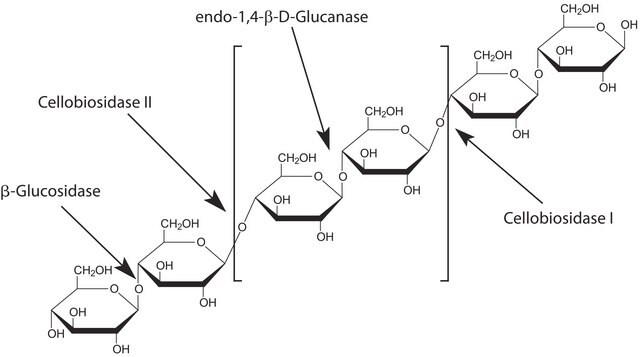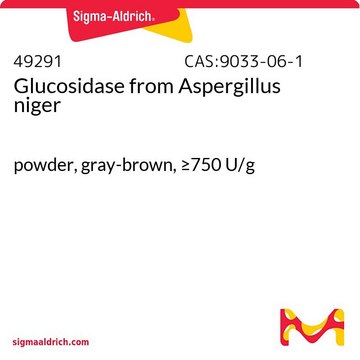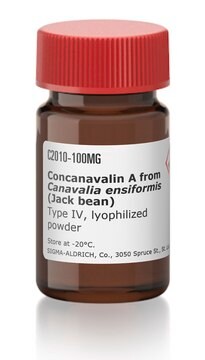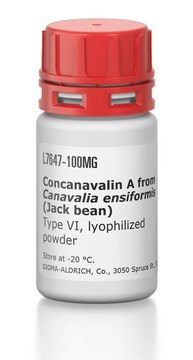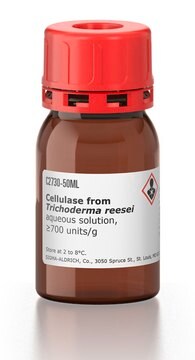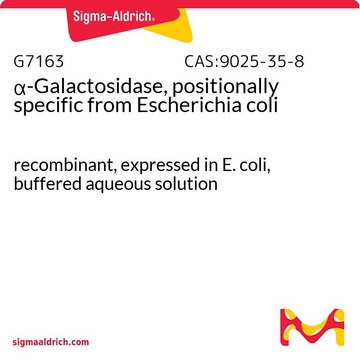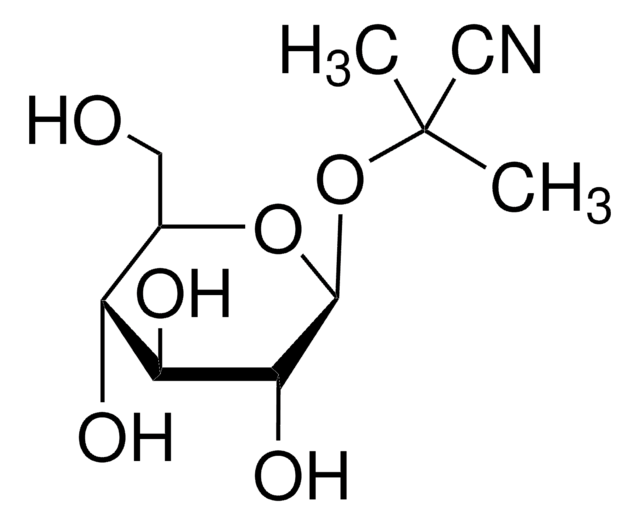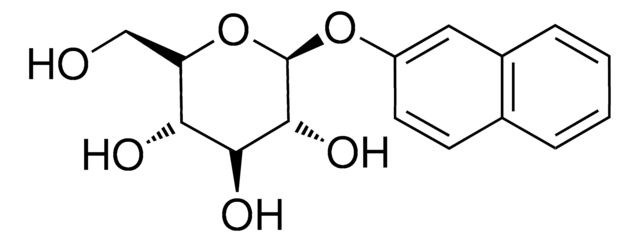G4511
β-Glucosidase from almonds
lyophilized powder, 10-50 units/mg solid
Sinónimos:
β-D-Glucoside glucohydrolase
About This Item
Productos recomendados
formulario
lyophilized powder
Nivel de calidad
actividad específica
10-50 units/mg solid
mol peso
50-75 kDa
características de los productos alternativos más sostenibles
Waste Prevention
Design for Energy Efficiency
Learn more about the Principles of Green Chemistry.
sustainability
Greener Alternative Product
impurezas
salt, essentially free
categoría alternativa más sostenible
, Enabling
temp. de almacenamiento
2-8°C
¿Está buscando productos similares? Visita Guía de comparación de productos
Descripción general
Aplicación
- in enzyme inhibition studies by 1,5-dideoxy-1,5-imino-d-xylitol(DIX) derivates
- as a control in for comparison of soybean isofavone glycosides degradation by β-Glucosidase from Talaromyce leycettanus
- as a medium component during saccharification and fermentation of yeast
Acciones bioquímicas o fisiológicas
Definición de unidad
Nota de preparación
inhibidor
sustrato
Palabra de señalización
Danger
Frases de peligro
Consejos de prudencia
Clasificaciones de peligro
Resp. Sens. 1
Código de clase de almacenamiento
11 - Combustible Solids
Clase de riesgo para el agua (WGK)
WGK 1
Punto de inflamabilidad (°F)
Not applicable
Punto de inflamabilidad (°C)
Not applicable
Equipo de protección personal
dust mask type N95 (US), Eyeshields, Faceshields, Gloves
Certificados de análisis (COA)
Busque Certificados de análisis (COA) introduciendo el número de lote del producto. Los números de lote se encuentran en la etiqueta del producto después de las palabras «Lot» o «Batch»
¿Ya tiene este producto?
Encuentre la documentación para los productos que ha comprado recientemente en la Biblioteca de documentos.
Los clientes también vieron
Artículos
Today, diverse studies report the benefits of probiotics, such as inhibitory effects on pathogens, aid in the management or prevention of chronic intestinal inflammatory diseases or atopic syndromes, and support to the immune system. Potential beneficial applications abound, researchers continue to evaluate the effictiveness and clarify the mechanisms of action of probiotics.
Nuestro equipo de científicos tiene experiencia en todas las áreas de investigación: Ciencias de la vida, Ciencia de los materiales, Síntesis química, Cromatografía, Analítica y muchas otras.
Póngase en contacto con el Servicio técnico